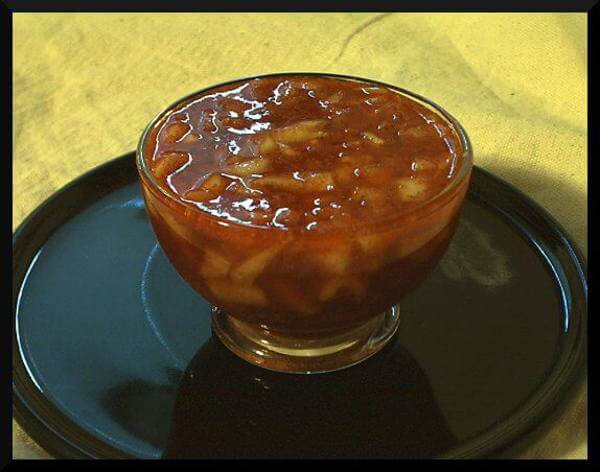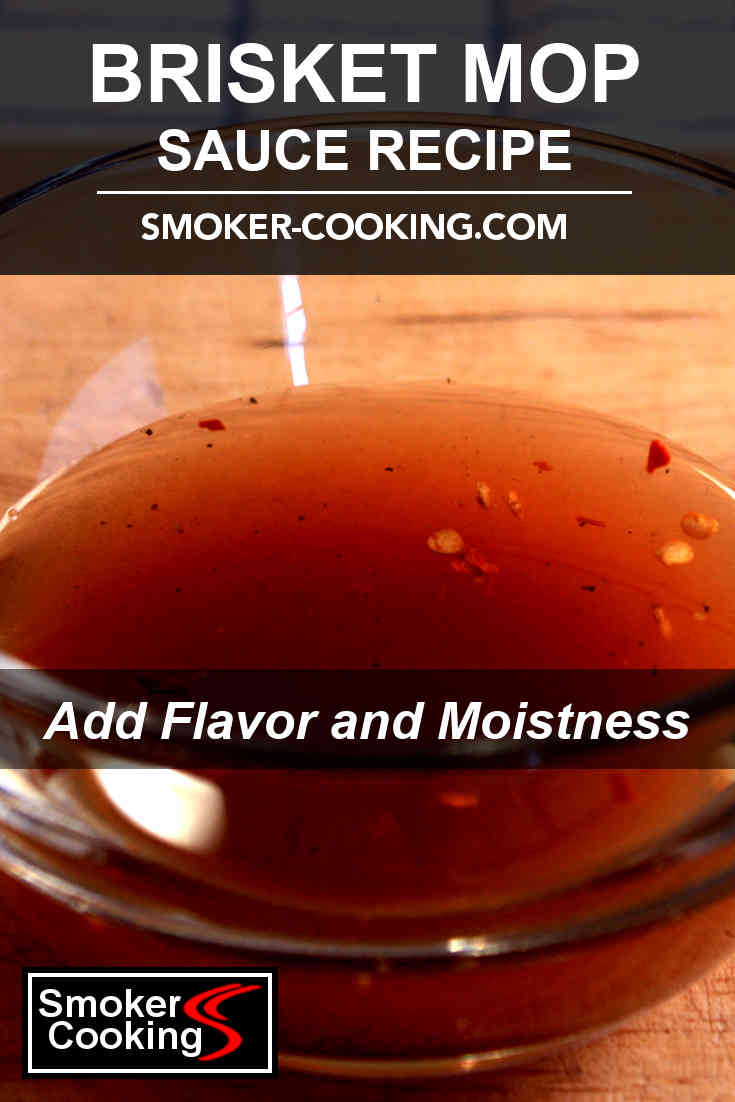Brisket Mopping Sauce Keeps Your Smoking Brisket Moist
Did you know that brisket mopping sauce is not a type of barbecue sauce? It's a basting liquid, made thin, flavorful, and without a lot of sugar or tomato that could burn, ruining your brisket.
You can adjust the ingredients a little to get the flavor just the way you like. I've substituted chopped Jalapeno peppers for half of the chopped onion...and it was good.

The following recipe is a little on the spicy side, so you might want to cut back on the cayenne pepper if you're feeding a gaggle of young 'uns.
The alcohol in the beer or wine will evaporate off quickly, but if you're concerned, you can substitute apple juice or cider.
Brisket Mopping Sauce Recipe
This recipe starts out with one 12 ounce bottle of beer. You can substitute 3/4 cup of wine, apple juice or apple cider for the beer, but it needs to be combined with an equal amount of water.
To the beer, or your substitute, add:
- 2 tablespoons of cider vinegar
- 1 tablespoon of paprika
- 1 tablespoon of Frank's Red Hot Sauce
- 1 teaspoon (or to taste) of cayenne powder
- 1 teaspoon black pepper
- 1 teaspoon of kosher salt
- 2 crushed cloves of garlic
- one medium chopped onion
(You will also need 1/4 cup of light vegetable oil, but this gets added later, right before this basting liquid is used.)
Mix this up at least a couple of hours ahead of time so the flavors have a chance to blend. An overnight rest in the refrigerator is even better. It takes time for the onion and garlic to flavor the liquid.
Add the vegetable oil just before you start basting the brisket. The reason for this is that if you put the oil in at the beginning, it will coat the onions and garlic, trapping some of the flavor.
Brush the brisket mopping sauce onto the meat every hour or so after the first four hours of smoking. For a big brisket, make up two recipes of the sauce.
While You Are Waiting, Have a...
Frank's Red Hot Red Beer
- 1 can or bottle of non-alcoholic beer (or real beer)
- 1/4 cup V8 Vegetable Juice Cocktail
- 1 tablespoon of Frank's Red Hot Louisiana Hot Sauce
- 1 teaspoon Worcestershire sauce
Pour the V8, Frank's and Worcestershire sauce into a glass first and stir together...then pour the beer. This prevents the beer from foaming.
Frank's is not extremely hot...but if you feel it's too hot for you, cut back and just put a few drops in your glass. Stir gently and sip while waiting for that mop sauce to finish!
The Theory Behind Brisket Mopping Sauce
The acidic vinegar in the mopping sauce has a tenderizing effect, and it also pushes the other flavors deeper into the meat. The beer and wine add flavor and moisture, while the oil coats the surface of the brisket, helping to seal in the juices.
- You Are Here: Home >
- Recipes >
- Smoked Brisket >
- Brisket Mop

